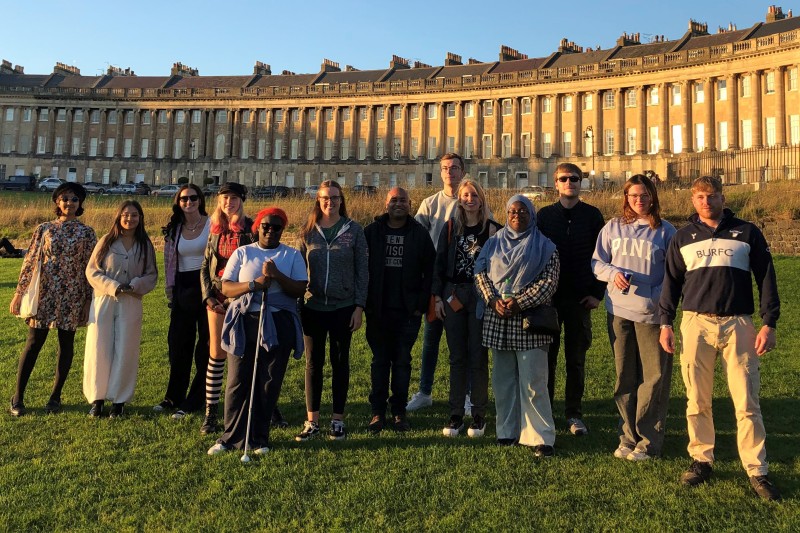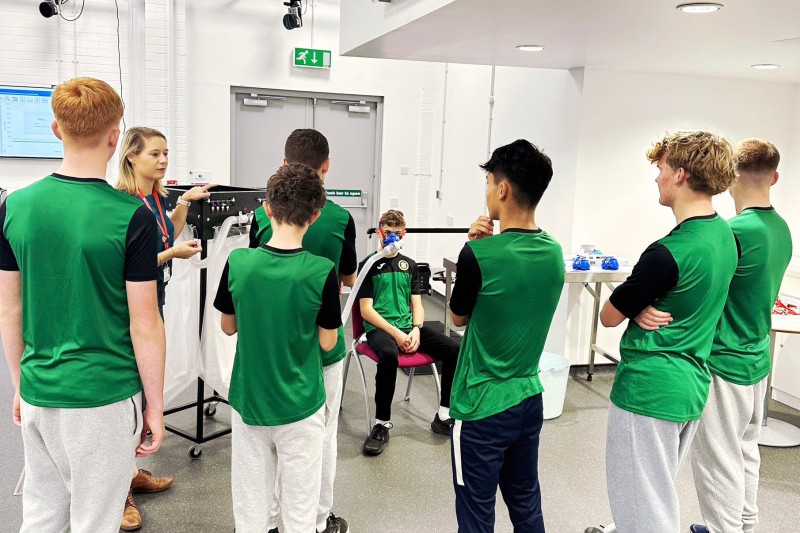As part of Disability History Month, the Accessibility, Disability, and Neurodiversity Staff Network at BU is hosting an engaging online panel discussion on "Reasonable Adjustments and Education" and a separate in-person coffee and treats afternoon.
These events will explore the critical importance of reasonable adjustments in education - both for students and for staff - and create a platform for open dialogue about lived experiences and inclusive practices.
Online panel – Reasonable Adjustments and Education
Date: Monday 9 December
Time: 11:00 – 13:00
Location:Online MS Teams Meeting – Click here to join
Hear about the lived experiences of our disabled and neurodiverse colleagues, while also being able to freely ask about general issues, or specific concerns relating to reasonable adjustments and accessibility. Open to all students and staff.
Coffee and treats with the Accessibility, Disability and Neurodiversity Network
Date: Tuesday, 10 December
Time: 12:30 - 13:30
Location: F104, Fusion Building, Talbot Campus
Have a relaxing warm drink, treat, and chat in F104. This event provides an informal opportunity to talk about any issues or thoughts about disability within the university, and have some one on one time with our panellists. You can also collect a free Sunflower Hidden Disabilities badge at the same time! All students and staff are invited.
To give us an idea of how many treats to prepare, please sign up here.
Why attend?
These events are an opportunity to:
- Hear first-hand experiences and perspectives from disabled and neurodiverse colleagues
- Learn about the challenges and successes of implementing reasonable adjustments
- Understand how accessibility benefits everyone in the university community
- Ask questions, share thoughts, and engage in meaningful dialogue
- Celebrate Disability History Month by supporting a culture of inclusivity and understanding.
Panellists include:
Abi Wheeler – A Disability Advisor at BU, and qualified Autism Mentor and Autistic practitioner, Abi is dedicated to fostering an inclusive university environment. Having graduated from BU in Psychology, she is now pursuing a PhD in Perinatal Mental Health, reflecting her commitment to impactful research and advocacy.
Dr Joanna Thurston – An Associate Dean for Student Experience and Student Voice Lead for the Office of the Vice Chancellor (April 2023-Dec 2024), Joanna has combined ADHD (impulsivity, with acute mental hyperactivity) that has both positively and negatively influenced where (and who) she is today. Joanna sees the embedding of inclusive practices as thecornerstone of positive student (and staff) experience and advocates for ‘lived experience led’ policy and practice-based enhancements, to create a safe,accessible and inclusive environment where all people can thrive. Her research is anchored in the power of individual stories and experiences, as a lens through which we can explore wider societal constructs, particularly in the domain of medical sociology.
Dr Max Lowenstein – A socio-legal academic and law lecturer with a passion for comparative criminal justice and a strong commitment to accessibility and inclusion. As Chair of Trustees for Action for Neurodiversity, Max uses his legal expertise to advocate for equality and support neurodiverse individuals in education and employment. Max openly shares his experiences as someone with autism, anxiety, and depression, working tirelessly to reduce stigma and promote awareness.
Dr Sarah Collard – A senior lecturer in psychology and programme leader of the level 4 students in the BSc Psychology programme at BU. As a person with epilepsy and research expertise in sport and exercise psychology, her PhD research explored the narratives of athletes with epilepsy, focusing on the psychosocial impact of exercise and strategies to enhance quality of life for individuals with chronic conditions. Sarah is dedicated to amplifying the lived experiences of underrepresented groups, with a particular interest in stigma surrounding invisible and visible disabilities in workplaces and exercise settings.
Dr William Proctor – An Associate Professor in Popular Culture, William specialises in transmedia storytelling, adaptation, and audience studies. William’s research examines the cultural and societal impact of popular media, contributing to a deeper understanding of its evolving dynamics.



